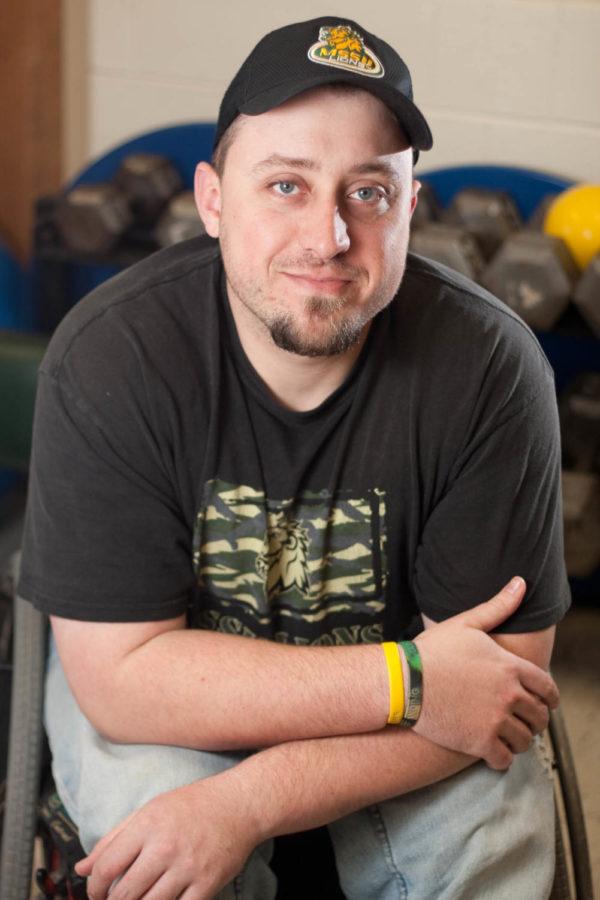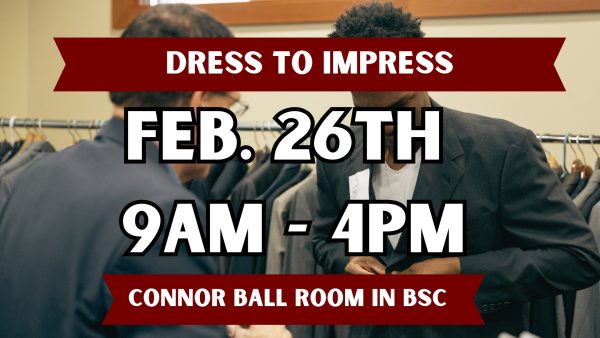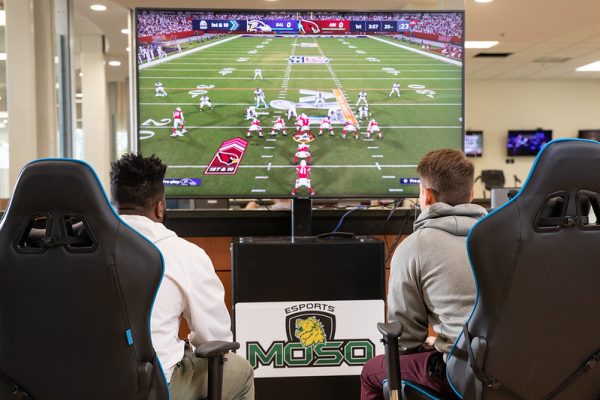Intern learning the ropes despite disability
Tadd Parrett, an intern in the Lions athletics department who lives with a disability that took the use of his legs, helps with sports medicine.
Taking care of athletes isn’t easy.
For Tadd Parrett, it’s his daily grind.
He must attend every sporting event from indoor track meets to cold, rainy soccer games to softball games.
His job is demanding, time-consuming and physically draining. Being confined to a wheelchair doesn’t stop him, though.
At 26, Parrett is an intern in the athletics department at Missouri Southern.
He works around 50 hours a week. His day consists of everyday athletic training activities for all Southern Sports. He’s quick to say he is not a certified athletic trainer, but he is learning.
“I get up at 7:15 in the morning, get ready, and head to the training room to start my pre-day ritual.
“I have to set up the whirlpool, set up treatment stuff for all the athletes that are about to come in,” he said.
“The majority of the time, I’m the first one in. I usually have a pretty full day of treatments, and then I go to practices.”
Parrett was born without the use of his legs, but he has never let his disability get in the way of achieving his dreams.
“I don’t look at it in a negative light, with the wheelchair,” he said.
“You have to overcome certain expectations that people put upon you. I’m doing something that not a lot of people have seen.”
He believes his life work is very worthwhile and is happy staying in the athletic world.
“The greatest joy I ever get is seeing an athlete who has been injured, go through the process of healing with them, then helping them out, you gain that friendship,” he said.
“When they go out on the court or the field and they succeed in their dreams, and knowing that you helped them achieve what they want to, it’s a great boost to yourself to knowing that you’re doing something good.”
He added, “I would really like to get somewhere in my status where I can help others in the field of sports medicine who may be disabled.
“I do not know many, but I want to meet more. Growing up, people said I couldn’t do this because of the physical demands, but if there’s a will, there’s a way.”
Parrett has a unique advantage.
“I grew up in the medical world because of my disability. I can relate with the athlete.
“I know what they’re feeling. I’ve never had an ACL injury, but I know how it feels to be out of a sport and through my experiences.”
He wants his example to be an inspiration to the athletes and those he works with.
“Don’t give up,” he said. “Somebody could have things worse than you do. People may say, ‘Man, that sucks, you can’t walk,’ but there is certain stuff you can’t do either.
“I’m limited, but we all are. If you let that beat you down, then you become more limited. Everything’s hard in life. As long as you have a positive attitude and have the skills, you should be able to achieve what you want.”
Your donation will support the student journalists of Missouri Southern State University. Your contribution will allow us to purchase equipment and cover our annual website hosting costs.




















